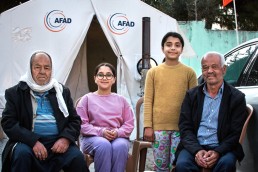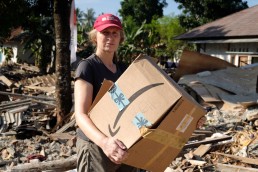Why 'Quick Fixes' Can Do More Harm Than Good: The Case for Long-Term, Sustainable Solutions
Introduction In the fast-paced world of international development and media, there’s often pressure to deliver quick, visible results. However, these “quick fixes” can sometimes lead to unintended consequences that do more harm than good. At Opika Studios, we understand that real change requires a thoughtful, long-term approach that prioritizes the needs and voices of local communities. In this blog, we’ll explore why quick fixes often fail and how to implement sustainable solutions that create lasting positive impact.
The Allure of Quick Fixes Quick fixes are appealing for several reasons. They offer immediate, tangible results, which can be especially attractive to donors, investors, or media audiences looking for clear evidence of impact. For NGOs and media companies, showcasing a completed project—whether it’s a newly built school, a clean water well, or a promotional campaign—can seem like the perfect way to demonstrate success.
However, these rapid solutions often neglect the complex social, economic, and environmental dynamics that influence their outcomes. Without a thorough understanding of the local context, quick fixes can lead to projects that are unsustainable, culturally insensitive, or even harmful to the very communities they intend to help.
The Risks of Short-Term Interventions One of the biggest risks of short-term interventions is the lack of community involvement. When projects are designed and implemented without the input and leadership of local communities, they can miss the mark on addressing the most pressing needs. This not only undermines the effectiveness of the intervention but can also erode trust between communities and organizations.
Additionally, quick fixes can sometimes create dependency. For example, providing free goods or services without a plan for local capacity-building can result in a situation where the community is reliant on external aid, rather than developing the skills and resources to sustain these initiatives on their own.
Opika’s Approach: Building Sustainable Solutions At Opika Studios, we take a different approach. We believe that the key to effective international work lies in sustainable, long-term solutions that are rooted in local knowledge and expertise. Our process begins with in-depth needs assessments and close collaboration with local stakeholders to ensure that every project is relevant and culturally appropriate.
Rather than focusing on immediate results, we prioritize building local capacity and empowering communities to take ownership of projects. This might mean training local content creators, collaborating with local NGOs, or supporting grassroots initiatives that have the potential to grow and thrive independently.
For example, when working on a media project in Southeast Asia, we didn’t just produce content and leave. We invested in local training programs, ensuring that the community had the skills to continue telling their own stories long after our team had left. This approach not only led to a successful project but also helped to build a foundation for long-term impact.
Conclusion: The Power of Patience and Partnership In the realm of international development and media, there’s no such thing as a quick fix that truly works. Real, lasting change takes time, patience, and a deep commitment to working in partnership with local communities. At Opika Studios, we’re dedicated to helping our clients navigate the complexities of international work by developing sustainable, ethical solutions that make a lasting difference.
If your organization is looking to create meaningful, long-term impact abroad, we invite you to partner with Opika Studios. Together, we can move beyond quick fixes and build a brighter, more sustainable future.
Beyond Immediate Relief: Building Resilient Communities Through Sustainable Disaster Response
Introduction In the chaotic aftermath of a disaster, the urgency to provide immediate relief often overshadows the need for sustainable, long-term solutions. While emergency aid is crucial in saving lives and alleviating suffering, it’s equally important to consider the long-term resilience of affected communities. At Opika Studios, we understand that effective disaster response goes beyond the immediate; it requires a thoughtful approach that prioritizes sustainability, local capacity building, and cultural sensitivity. In this blog, we’ll explore how adopting a sustainable mindset in disaster response can create lasting positive impacts.
The Challenges of Traditional Disaster Response Traditional disaster response models are often centred around the rapid deployment of resources to meet immediate needs—such as food, water, shelter, and medical care. While these interventions are necessary, they can sometimes lead to unintended consequences when not integrated with longer-term strategies.
For example, the influx of outside aid can overwhelm local systems, creating dependency and displacing local businesses or initiatives that are crucial for long-term recovery. Additionally, a one-size-fits-all approach to disaster relief may overlook the specific cultural, social, and environmental contexts of the affected area, leading to solutions that are unsustainable or inappropriate for the community.
The Importance of Local Leadership and Participation One of the key principles of sustainable disaster response is ensuring that local communities are at the forefront of recovery efforts. This involves not only consulting with local leaders but actively involving them in decision-making processes. When communities are empowered to take charge of their own recovery, the solutions are more likely to be culturally appropriate, sustainable, and effective.
For instance, in the wake of a natural disaster, providing temporary shelters is often a top priority. However, instead of importing prefabricated structures, a sustainable approach might involve using local materials and labor, combined with traditional building methods that are adapted to the local environment. This not only addresses the immediate need for shelter but also supports the local economy and preserves cultural heritage.
Opika’s Approach: Integrating Media and Sustainability in Disaster Response At Opika Studios, we recognize the critical role of media in shaping disaster response and recovery. Our approach goes beyond simply documenting the aftermath of a disaster; we aim to amplify local voices, share knowledge, and support sustainable recovery efforts through our content.
For example, during our recent work in the aftermath of a natural disaster, we partnered with local NGOs to produce media that not only highlighted the immediate needs of the community but also showcased local initiatives aimed at long-term recovery. By focusing on local stories and solutions, we helped to shift the narrative from one of dependency to one of resilience and empowerment.
Moreover, our media work is always paired with comprehensive needs assessments that ensure we’re addressing the most pressing issues in a way that’s both effective and sustainable. This holistic approach allows us to create content that supports recovery efforts while promoting long-term resilience.
Conclusion: The Path to Sustainable Recovery Disaster response is about more than just immediate relief; it’s about laying the foundation for a stronger, more resilient future. By prioritizing sustainability, local leadership, and cultural sensitivity, we can help communities not only recover but thrive in the aftermath of a disaster.
At Opika Studios, we’re committed to supporting our clients in developing disaster response strategies that are both effective and ethical. Whether through media, consultancy, or direct support, we’re here to help you navigate the complexities of disaster response with a focus on long-term impact.
If you’re looking to make a lasting difference in disaster-affected communities, we invite you to partner with Opika Studios. Together, we can go beyond immediate relief and build a better future for all.
Lizzy Stileman / Army Skills / British Army
Highlighting Our Media Expertise: British Army Disaster Response Feature
Project Overview: Opika Studios played a significant role in facilitating video and photographic content that the British Army featured.



